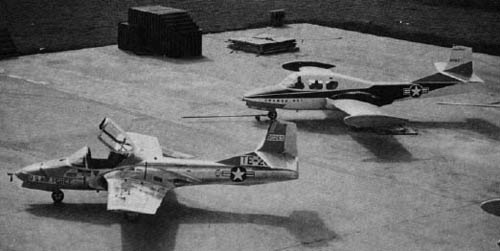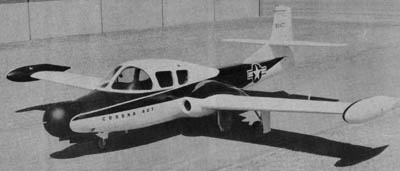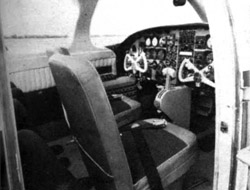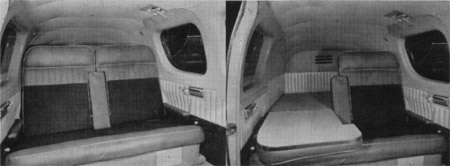 |
||||||
|
||||||
|
|||||||
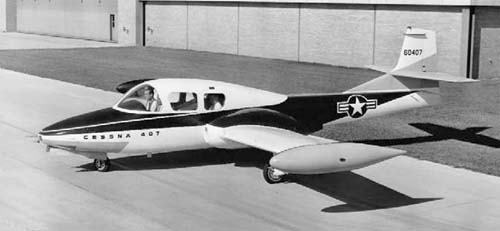 |
|||||||
| Cessna 407 | |||||||
In the 1950s, aircraft companies discovered a future market: Business jets, which made fast individual air travel possible. The U.S. military was also interested in a low-cost light jet with high performance and multi-mission profile. Trying to profit from the new market, the Cessna Company decided to come up with an adaption of the Cessna T-37, which they were largely involved with at the time. It was felt that an adaption of a proven aircraft would lower the cost by also shortening development and testing. |
|||||||
|
|||||||
|
|||||||
| This modified T-37 was named the Cessna 407 and was introduced in September 1959. It used as many parts of the actual T-37 as possible to ensure similar reliability. It featured a fuselage that had been stretched by two feet to make space for a four seat cabin. The plane was supposed to retain the T-37’s twin steering. Entrance to the modified cabin was supposed to be a door on the starboard side and the rear seats could be removed or folded to make space for cargo. The plane was marketed as a military liaison aircraft and corporate jet transport but failed to win any customers, hence the program was abandoned. |
|||||||
|
|||||||
|
|||||||
| It is not sure, whether the Cessna 407 actually ever flew, as some sources mention it as having flown while others say that only a full-size mock-up was rolled out. Compared to the T-37, the Cessna 407 will have been a bit underpowered due to the added weight. A successful aircraft which was developed in a similar way was the North American Sabreline, which used the wings and other parts of the Sabre Fighter. It was purchased by the U.S. military as the T-39 as a trainer and liaison aircraft. |
|||||||
| wingspan: 10.26m length: 9.52m height: 2.8m empty weight: 1755kg max loaded weight: 3630 kg maximum speed: 4647km/h range: 1065km |
|||||||
| return to top | |||||||
